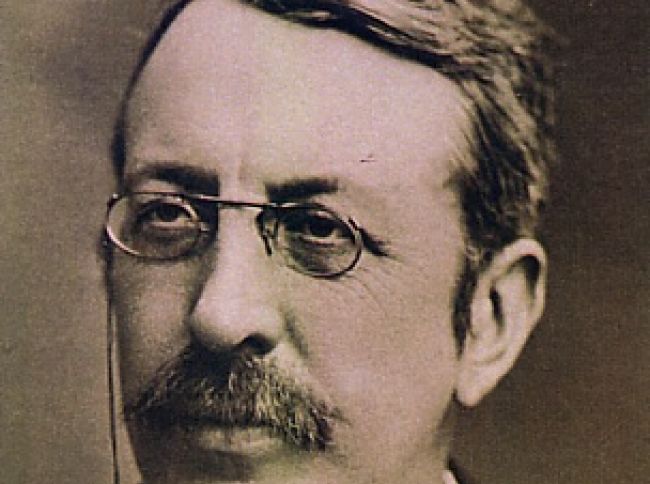
Sir Charles Villiers Stanford was the most famous composer of Irish origin before independence. Born into a musical family with many contacts to leading musicians and intellectuals, he first studied privately with Michael Quarry, Joseph Robinson and at the Royal Irish Academy of Music with Robert Prescott Stewart. In 1870 he began his academic studies at Cambridge and from 1873 at Trinity College of Music, London. The next three years he spent half a year each studying in Germany, which he did with Carl Reinecke at Leipzig and with Friedrich Kiel at Berlin and he became friendly with Brahms and Offenbach. From 1883 he was the first professor of music at the Royal College of Music, London (until his death in 1924), and occupied the same position at Cambridge from 1887-1924. He taught virtually the whole next generation of British composers including Ralph Vaughan Williams, Gustav Holst, John Ireland and some Irish composers as well.
Stanford wrote ten operas, seven symphonies, thirty-three oratorios or cantatas, three piano concertos, eight string quartets and a large number of smaller works among which his large body of song compositions stands out especially. In many works he distinguishes himself by his overt use of Irish traditional elements. This combined with the spirit of the age would have made him the ideal candidate for fame as national Irish composer, but it was his strong unionism and protestantism as well as his residence in England which made later generations doubt his sincerity. Too Irish for the English, too English for the Irish and too German for both, he fell between all stools, where only a new appreciation in a more multicultural environment will help his position.
